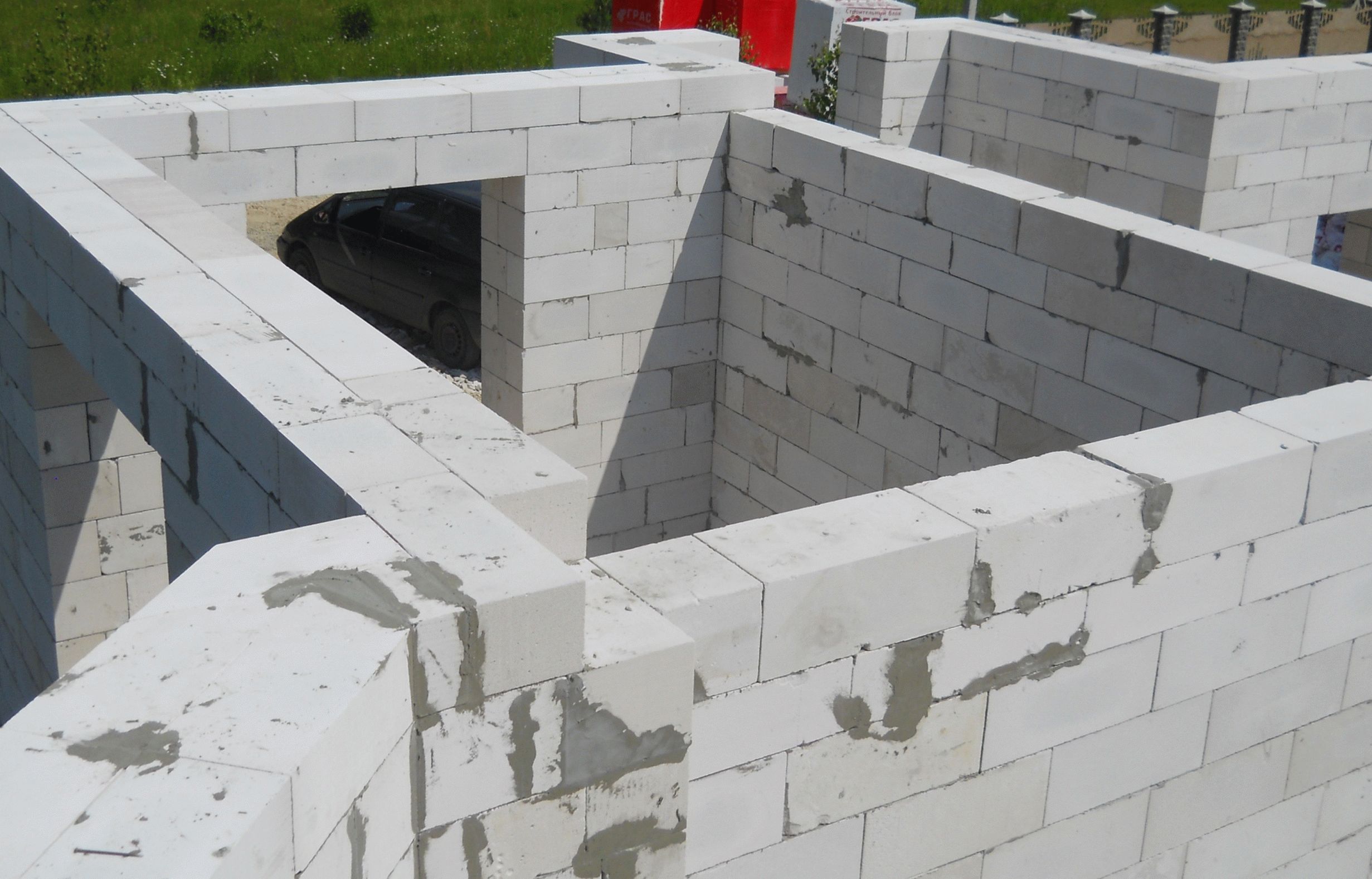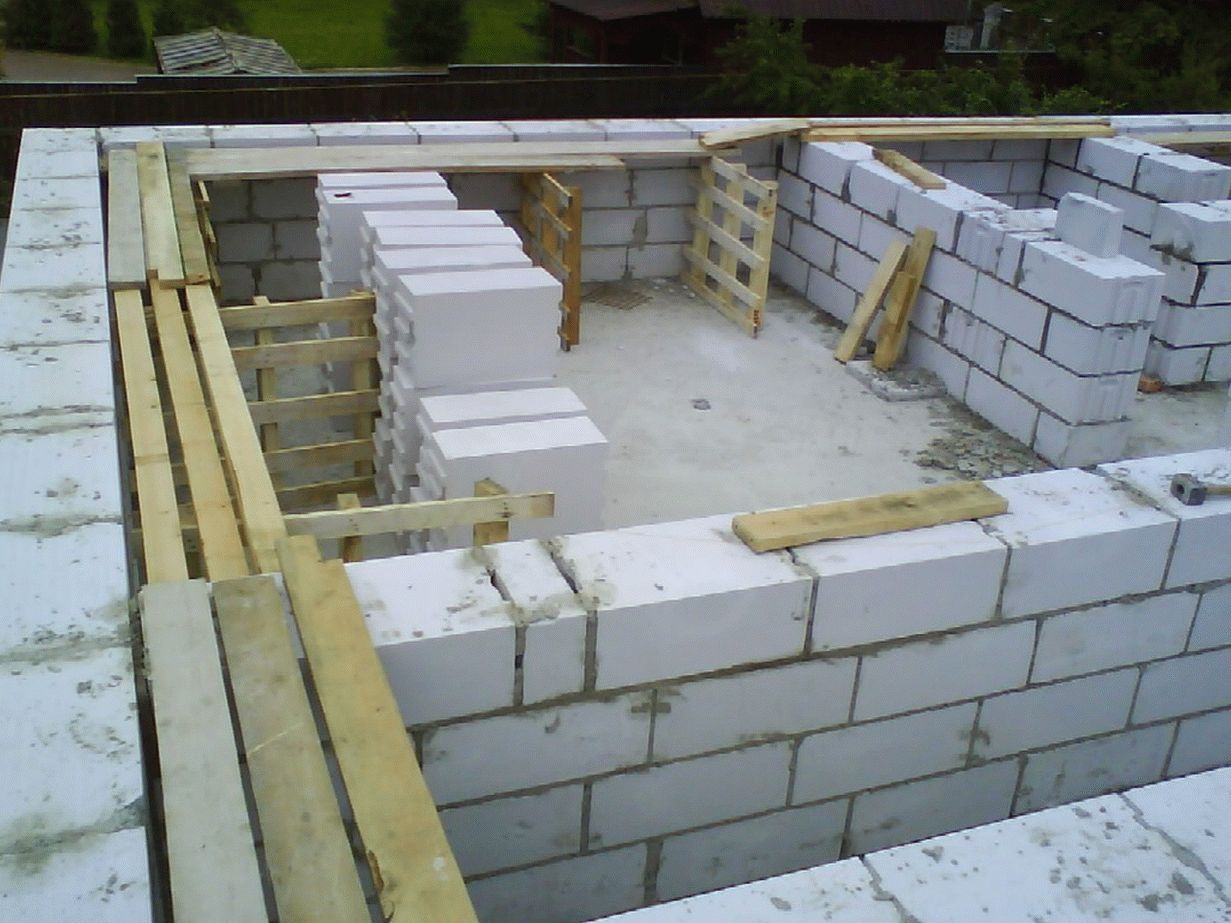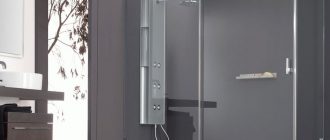Aerated concrete – the building material of the new generations that are actively used in construction houses, the construction of partitions and walls in low-rise buildings.
This material is classified as aerated concrete, due to a huge number of pores. Their presence is associated with the addition of making a mixture of aluminum powder, which plays a role blowing agent.
Interacting with cement, water, lime and quartz sand, aluminum powder starts the process of hydrogen evolution, in resulting in a large number of gas bubbles, which, when solidified, form pores.
Aerated concrete is manufactured autoclaved in an industrial environment method. This means that in the production of this material an autoclave is used – a special furnace with a specific high temperature and high pressure.
In which the prepared mixture is placed to form blocks. The composition is poured into large forms and the mixture is allowed to solidify.
Due to the porous structure after manufacturing, aerated concrete is easy amenable to machining. You can easily do it saw if necessary, it can be milled and planing.

Contents
Benefits:
Aerated concrete has several advantages, due to which it is widely used in the construction industry. These include:
1. Increased thermal insulation. It’s connected with air that fills the pores of the material. According to heat-saving properties, it is similar to brick. Walls that made of this material do not require additional warming.
2. High energy-saving feature. At the construction of houses from aerated concrete indoors is preserved cool in summer and warm in winter. This allows you to save as much as possible. on heating facilities.
3. Increased fire resistance. Material not supports combustion due to its composition, and is also resistant to high extreme temperatures.
4. Increased sound insulation. It’s connected with the porous structure of aerated concrete.
5. The increased sesmostoykost. Reinforced elements that make up the material give aerated concrete high resistance to natural disasters and earthquakes.
6. Environmentally friendly material. Aerated Concrete contains only environmentally friendly natural substances and does not emit harmful impurities. According to this indicator, he second only to wood.
7. Moisture resistance. At at humidity in 90-95% Due to the porosity of the material, this indicator changes only 7%.
8. The increased frost resistance. Aerated concrete able to withstand more than two hundred cycles of continuous freezing and thawing, which allows it to be used even in the most severe and extreme climatic conditions.
9. High biological resistance impacts. During construction, aerated concrete does not require special antiseptic treatment against mold and fungus.
10. Long service life. The operational resource of aerated concrete is designed for a period of 100 years and more.
11. Due to its size, the speed of construction increases facility, which significantly reduces labor costs.
12. Increased ease and simplicity processing

Disadvantages:
However, there are also disadvantages to aerated concrete, about which the manufacturer sometimes tries to remain silent. These include:
1. High hygroscopicity. Since the material has a porous structure, then after a certain period of operation in excess moisture accumulates in the pores of the blocks.
And this contributes to the softening of the material, which in the future may lead to its complete or partial destruction.
Given this fact, experts recommend during construction structures or walls made of aerated concrete waterproofing.
2. The possibility of cracking. In in most cases this is due to incorrect calculations for load. Therefore, it is important to consider this lack of material.
3. Blowing masonry. To avoid of this, it is necessary to use for laying blocks of special glue.
Thanks to its use, not only reliable and high-quality coupling between the blocks, but the possibility will be excluded the appearance of the so-called cold bridges.
Using special glue for aerated concrete will increase tightness of structures and walls.





